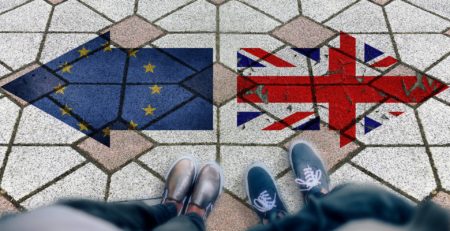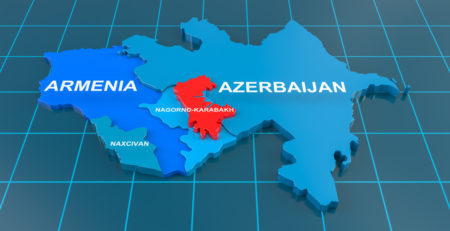Brexit: Schengen doesn’t change much but people are affected
Nathalie Loiseau is a Member of the European Parliament. Previously, she was French Minister for European Affairs, the woman whom President Macron entrusted with the responsibility of accompanying Brexit. Loiseau delighted the French and international press when she revealed that she baptized her cat with the name “Brexit”.
In the morning meowing desperately to leave, the door opens and the cat hesitates between entering and leaving. The owner must push the cat out into the street, but it shortly returns to scratch the door, while meowing loudly until the owner opens it again and allows it to return.
When Loiseau confessed that she had no cat and that she had made up the story, they all forgave her because the caricature was delightful. It is not only accurate today, with successive postponements, delays, and hesitations in the process of leaving, but is also the portrayal of indecision and uncertainty that we continue to live. The United Kingdom has always been a hesitant member of the European Union: in and out, always wanting an “à la carte” Europe, choosing benefits and eschewing responsibilities. As a Member State of the Union, it has not fully signed the Charter of Social Rights, doesn’t participate in the Euro, and doesn’t belong to the Schengen area … In essence, it has always sought the best of both worlds: to benefit from all advantages and avoid all obligations. This was the blocking force of many reforms that we have put off for too long in Europe.
The United Kingdom is not in Schengen
In addition to the fact that the United Kingdom has never participated in Schengen (which makes nothing much different in this respect in pre- and post-Brexit border controls in this respect), since the time of Prime Minister Cameron it has been decreasing or eliminating its participation in various dimensions of the Area of Freedom, Security and Justice (AFSJ). The UK preferred opting out in different programs and regulations, did not consider itself bound by the EU Charter of Fundamental Rights, “expelled” the European Police College (which was transferred to Hungary), reduced judicial cooperation and dropped the Arrest Warrant, even when there were good examples of its effectiveness, with benefits for the UK in combating international crime. The decision by the Cameron Government to no longer apply the European Arrest Warrant was reversed only by a decision of the British Parliament which amended some of the measures adopted by its Government following the entry into force of the Lisbon Treaty.
The departure of the British from the Europe of Citizens is a clear expression of what has always been their favourite dimension: the Internal Market, the Europe of goods, services and capital.
Schengen was a hated symbol not only because it Europeanised border controls (reducing the perception of British sovereignty) but especially because it reinforced the freedom of movement so attacked in the English press.
But the important thing is the people!
But if so, if the UK does not participate in Schengen, what drastically changes with Brexit to have so many people worried? Many years ago, I read a book by a British liberal, Shirley Williams, called “Politics is for People”. She recalled that what really matters in politics is that when it is done with dignity and a spirit of service, it is thinking of those whose lives are affected by the decisions we make.
In this regard, about 5 million people are directly and especially affected by Brexit. There are 3.5 million “European” citizens living in the UK and 1.5 million Britons in other EU states. In the case of the Portuguese, the relationship is even more unequal: for about 400 thousand Portuguese in Her Majesty’s lands, there will be less than 40 thousand Britons living in Portugal.
And the status of all these people changes radically with Brexit. As an EU Member State, the United Kingdom is required to recognize citizenship status for any “European” in its territory. People cannot be discriminated on grounds of nationality, benefits from social protection, they can reside, set up businesses and work freely and without the need for requesting special authorization.
With Brexit, these 5 million people are no longer citizens and become migrants. Their status and protection change significantly. And all British in the future will become “foreigners” in the other Member States of the Union. All “Europeans” will also be considered as third country nationals on British territory.
Provisional Standards May Be Insufficient
It is true that the Exit Agreement includes rules to mitigate the effects of this change of status for “Europeans” already in the United Kingdom and for Britons in other EU states.
Those who have been legally registered in the United Kingdom for at least 5 years may apply for settled status and those who have not yet fulfilled this requirement but are legally established in the United Kingdom by the exit date, may apply for pre-settled status up to 5 years in order to be able to apply for permanent residence status.
These regulations , however, do not confer an automatic right. People will have to apply for these permits and the British authorities have the right to grant them or not. And any future regulation may condition them to requirements that are not known today, such as the link between the existence of offenses and the attribution of this status. No one can guarantee, for example, that in future a poorly parked car cannot have consequences for granting these permits.
Problems of interpretation and bureaucratic and administrative difficulties will most likely multiply.
It is true that many countries have already started establishing contingency plans foreseeing a Hard Brexit (an exit without agreement). Portugal did it too. And granted, by law, rights to British citizens who are in Portugal on the condition of reciprocity for the Portuguese who are in the United Kingdom. But bilateral negotiations will be a consequence of the relative strength of each state. Spain did it as well, but it is in a more comfortable position. There are almost 400 thousand Britons in Spain (the largest British community in another EU Member State) and only about 180 thousand Spaniards in British lands. Portugal is in another situation. For every British in Portuguese lands, there are 10 Portuguese in the United Kingdom…
Data from European citizens may be less secure
The Exit Agreement provides for security cooperation clauses. On both sides there seems to be an interest in pursuing intergovernmental cooperation on intelligence.
The United Kingdom has never hidden its desire to maintain access to European databases, particularly the Schengen Information System (SIS), but also to others within the area of Freedom, Security and Justice. This, when it was detached from almost all instruments and policies in this area.
The Schengen Task Force, which I have chaired in the European Parliament in recent years, pointed out and denounced the fact that the United Kingdom is using the databases (i.e. the data contained therein, including those of European citizens) in disregard of legal rules, in particular those relating to the protection of personal data. We then recommended that the provisional authorization given to the United Kingdom should be revoked and we should interrupt the access that made our data vulnerable.
The fact that Brexit is being negotiated has made this debate inopportune but its consequences for the future are clear. If, as an EU Member State (and subject to its scrutiny) the United Kingdom has not complied with the law and made our data more vulnerable, will it be more diligent in the future, if it continues to have access to it and is no longer subject to the European Commission’s inspectorate through Schengen Evaluation System?
Having your cake and eating it
The shallowness with which the British Government looks at Brexit is a consequence of the illusion that one can be outside the European Union by continuing to benefit from many of its projects.
And many Britons believe that. They think it is possible to be outside, not to be subject to common rules, to have no financial responsibilities and to be free to respect freedom of movement while still benefiting from the Internal Market, Erasmus, science and innovation support policies, among several others.
It would be the same as any of us leaving a club, no longer paying dues, and wanting to continue to benefit from yoga classes, pool access, and keeping the stadium seat.
The Portuguese call it “wanting sun on the threshing floor and rain on the turnip field”, and recognize that it is an impossible situation. It makes no sense that he who leaves the club gets a better deal than those who remain. If that happened, it would be an act of self-destruction because everyone inside such a situation would rather go out. And that would be the end of the EU.
No one is currently in a position to guarantee whether or not there will be Brexit. But if so, we should look at the United Kingdom leaving as an opportunity for the Union to play a role in the long-standing reforms that have been blocked by a Member State that has always had one foot outside and one foot inside. And protect our citizens by reinforcing freedom of movement within the Schengen area and security measures associated with it.













